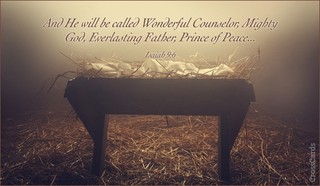
- Recent Translations
- All Translations
Isaiah 9:2
Share
Settings
Images for Isaiah 9:2

Isaiah 9:2 Meaning and Commentary
The people that walked in darkness
Meaning not the inhabitants of Judah and Jerusalem, in the times of Hezekiah, when Sennacherib besieged them, as Jarchi and Kimchi interpret it; and much less the people of Israel in Egypt, as the Targum paraphrases it; but the inhabitants of Galilee in the times of Christ; see ( Matthew 4:16 ) ( John 1:48 ) ( John 7:49 John 7:52 ) and is a true character of all the people of God before conversion, who are in a state of darkness, under the power of sin, shut up in unbelief; are in gross ignorance of themselves, and their condition; of sin, and the danger they are exposed to by it; of divine and spiritual things; of the grace of God; of the way of peace, life, and salvation by Christ; and of the work of the blessed Spirit; and of the truths of the Gospel; they are in the dark, and can see no objects in a spiritual sense; not to read the word, so as to understand it; or to work that which is good; and they "walk" on in darkness, not knowing where they are, and whither they are going; and yet of these it is said, they have seen a great light;
Christ himself, who conversed among the Galilaeans, preached unto them, and caused the light of his glorious Gospel to shine into many of their hearts; by which their darkness was removed, so that they not only saw Christ, this great light, with their bodily eyes, but with the eyes of their understanding; who may be called the "light", because he is the author and giver of all light, even of nature, grace, and glory; and a "great" one, because he is the sun, the greatest light, the sun of righteousness, the light of the world, both of Jews and Gentiles; he is the true light, in distinction from all typical ones, and in opposition to all false ones, and who in his person is God over all. They that dwell in the land of the shadow of death;
as Galilee might be called, because it was a poor, miserable, and uncomfortable place, from whence no good came; and this character fitly describes God's people in a state of nature and unregeneracy, who are dead in Adam, dead in law, and dead in trespasses and sins, dead as to the spiritual use of the powers and faculties of their souls; they have no spiritual life in them, nor any spiritual sense, feeling, or motion; and they "dwell", continue, and abide in this state, till grace brings them out of it; see ( John 12:46 ) : upon them hath the light shined:
Christ in human nature, through the ministration of his Gospel, by his spirit, so as to enlighten them who walk in darkness, and to quicken them who dwelt in the land of the shadow of death, and to comfort them in their desolate estate; and this light not only shone upon them in the external ministration of the word, as it did "upon" the inhabitants in general, but it shone "into" the hearts of many of them in particular, so that in this light they saw light.